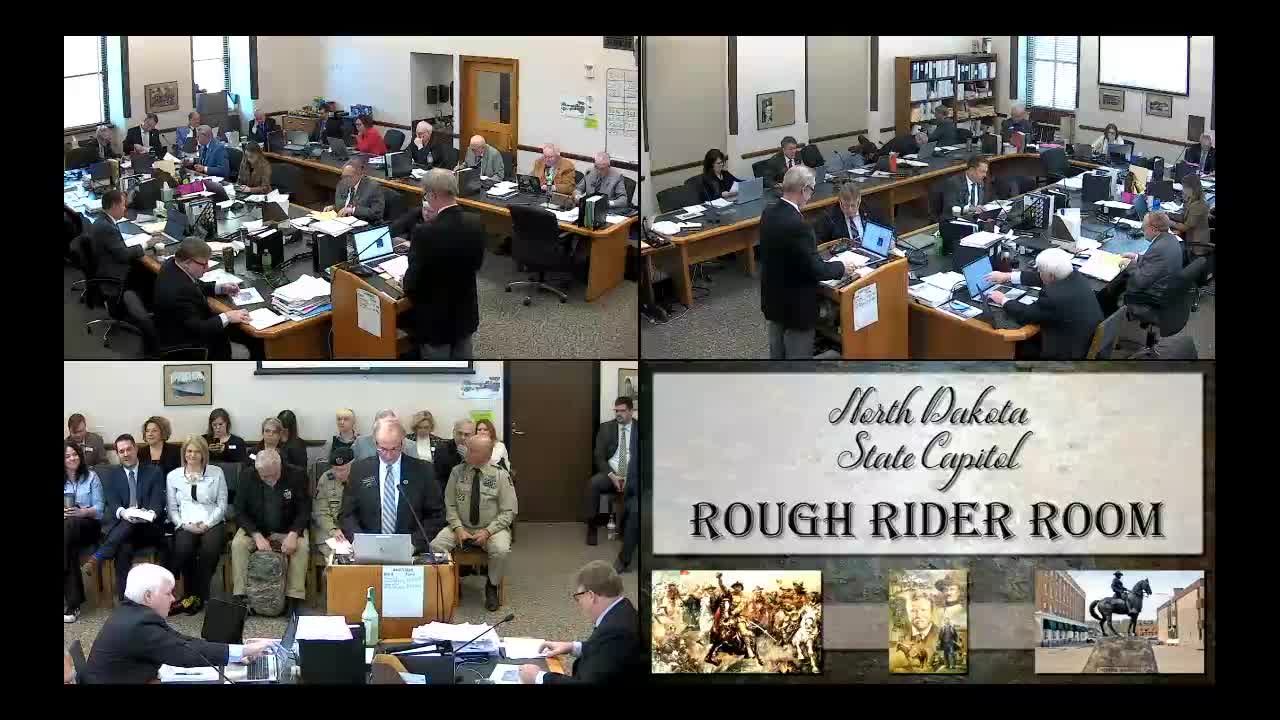House Appropriations approves due-pass on bill to mail voter guides for ballot measures
Get AI-powered insights, summaries, and transcripts
Subscribe
Summary
The committee advanced Senate Bill 2230 directing the Secretary of State to mail objective voter guides to active voters at least 45 days before elections; the bill includes a one‑time $600,000 appropriation for printing and postage to cover two elections in a biennium.
Senate Bill 2230 would require the Secretary of State to create and mail voter guides about statewide ballot measures to “active voters” at least 45 days before an election. Chairman Austin Shower explained to the House Appropriations Committee that the guides would include an objective summary, anticipated fiscal impact, origin of the measure (legislature or petition), and an objective analysis of votes in favor and opposed.
Secretary of State Michael Howard testified in favor of the bill’s intent and said the mailed materials would not duplicate existing requirements to keep ballot language readable; instead, the guides would provide more in‑depth, objective explanations than fit on a ballot. Howard said the guides would also be posted on the secretary’s website and at voting locations and shared through social media. “Our office is never gonna shy away from the opportunity of getting trusted election information out to the hands of voters,” he said.
The bill’s appropriation request is $600,000 for one‑time costs: $400,000 for postage and $200,000 for printing and envelopes; sponsors said bulk postage estimates range from $0.38 to $0.50 per piece and the funding would cover two elections in the biennium. The sponsor told the committee this would be targeted to active voters who have participated in a statewide election in the past four years to increase the likelihood recipients will engage the materials.
Committee members generally supported the proposal as a voter-education tool. Representative Hansen noted the League of Women Voters’ vote411.org site provides similar content online but not mailed to voters; Representative Murphy said the Secretary of State’s office is an appropriate, nonpartisan source to provide objective information. Representative Wagner raised concerns about the requirement that public funds not be used for referendum advocacy under the corrupt practices act; Secretary Howard said the office will strive for objectivity but will face criticism and will “do our best to make this as objective as I can.”
Representative Meyer moved and Representative Pyle seconded a due‑pass motion. The committee approved the due‑pass motion on a roll call (motion carried 19 yes, 4 absent/not voting). The committee record shows the motion passed and the bill will move to the next stage of consideration.
Notes: The bill specifies mailing at least 45 days prior to election day (selected to precede absentee ballots), targets active voters, and contemplates posting the same materials at voting locations and online.
